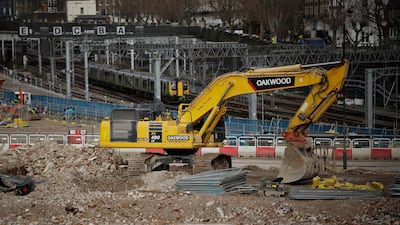Britain said it would proceed with a plan to build High Speed 2, giving Europe's largest infrastructure project the green light despite criticism that it is billions of pounds over budget.
Known as HS2, the new line between London and northern England will slash journey times and add capacity to Britain's crowded network, allowing the UK to catch up with countries like France and Spain which have extensive high-speed rail.
The project is the centrepiece of the UK’s drive to improve links between major cities and drive prosperity to northern areas that have been traditionally less prosperous than London.
Critics of the plan had cited environmental concerns and the high cost, claiming that the money could be better spent on less high-profile improvements to the network.
Prime Minister Boris Johnson told MPs on Tuesday that he would restore discipline to the project after its costs spiralled. A minister will be appointed whose full-time job will be to oversee the project.
“The cabinet has given high speed rail the green signal,” he told Parliament. “We are going to get this done, and to ensure we do so without further blow outs on either costs or schedule, we are taking decisive action to restore discipline to the programme.”
A review was carried out last year into whether HS2 should go ahead at all, after its predicted cost rose to a reported £106 billion almost double the bill five years ago.
Industry welcomed the decision to back the project, which it is claimed will create 25,000 jobs and cut travel times from Britain’s second city Birmingham to London from 82 minutes to 45.
Matthew Fell, chief UK policy director of the Confederation of British Industry said: “It sends the right signal around the world that the UK is open for business.”
The project is the country’s second high speed line. The first links London with the Channel Tunnel to France.

